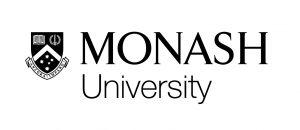
Posted: 1 May 2024
More than $800,000 in seed funding has been awarded to four Monash Victorian Heart Institute partnered research teams in Round 1 of the Australian Stroke and Heart Research Accelerator (ASHRA) Seed Funding Scheme.
The ASHRA Centre is a $10 million national collaborative, funded by MTP Connect, with a sector-wide focus on clinical impact and entrepreneurship. It provides support for research acceleration projects at an institutional level, prioritising those that are feasible, aligned with end-user needs and have commercial potential.
The funding was awarded to projects focused on novel stent design, improving stroke recovery, the role of the gut in hypertension, simulation training and diet and cardiometabolic diseases.
Director of the Victorian Heart Institute and Victorian Heart Hospital, Professor Stephen Nicholls, said the funding recognises a range of projects with a drive to impact.
“We see research being about impact – how it will influence health and how we can accelerate it. These projects are great examples of that. Congratulations to all recipients,” Professor Nicholls said.
The projects awarded are:
Design refinement and pre-clinical testing of a radiopaque and fully resorbable stent
- Project lead: Professor Laurence Meagher, Monash Engineering, Victorian Heart Institute
- Awarded: $250,000.00
- Project team: Dr Gregory Szto, Dr Bruna Gams
Despite improvements in stent design, drug elution, and coatings, adverse events are still high. If the stent can fully degrade before late complications occur, the incidence rate is expected to decrease. So we are aiming to test a biodegradable stent. The funds will be used to evaluate the safety and pharmacokinetic properties of the Monash University-developed degradable stent prototypes in small and large animal studies.
A stem cell and biomaterial strategy to improve stroke recovery
- Project lead: Dr Bradley Broughton, Monash Biomedical Discovery Institute, Victorian Heart Institute
- Awarded: $250,000.00
- Project team: Professor Mibel Aguilar, Professor John Forsythe, Professor Helena Parkington, Adjunct Clinical Professor Thanh Phan, Professor Henry Ma, Leon Teo
Stroke-induced brain injury is driven by severe inflammation and cell death. These are complex pathways and successful therapies will need to target multiple protective and neuroregenerative mechanisms. Administration of stem cells can suppress cell death and inflammation as well as stimulate neuronal growth following stroke. We have developed a unique hydrogel (AMGEL) to deliver stem cells to the injury sight post ischemic stroke. In addition, AMGEL can protect stem cells, hence providing a solution to the problem of stem cell degradation at the sight of injury. We have obtained a patent for AMGEL and with this funding we will further validate the therapeutic potential AMGEL and stem cells have as a stroke treatment in clinically relevant animal models.
Development of new diets enriched in gut microbial substances to treat cardiovascular disease
- Project lead: Associate Professor Francine Marques, School of Biological Sciences, Victorian Heart Institute
- Awarded: $158,000.00
- Project team: Associate Professor Sushil Dhital, Dr Rikeish Muralitharan, Dr Hamdi Jama
We are leveraging substances produced when dietary fibre is digested by the gut microbiome to deliver a novel way to lower blood pressure. We are aiming to develop new short-chain fatty acid supplements to treat hypertension that could be commercialised in the next 5-10 years. In our early validation trials, we noted, 24-hour systolic blood pressure lowered by 6.1 mmHg in as little as 3 weeks – this is equivalent of one blood pressure lowering medication. Thus, new products that can deliver high levels of short-chain fatty acids offer a new option for treatment for hypertension. This will pave the way for their use for heart disease and stroke.
Developing a simulation training suite to improve safety and effectiveness of ECMO
- Project lead: Dr Rezan Al-Jafary, Monash Engineering, Victorian Heart Institute
- Awarded: $150,000.00
- Project team: Dr Andrew Stephens, Professor Carol Hodgson, John Pollard, Professor Chris Bain
Scale up and validation of an extracorporeal membrane oxygenation (ECMO) training suite, comprising a medical manikin with an inbuilt cardiovascular simulator and ultrasound-compatible tissue-like materials with skin and vessels. Invention disclosure had been filed for this technology. Funding is required to scale-up phantom manufacturing and develop minimum viable products for our software and MR training. Funds will also be used to demonstrate the educational benefits and demonstrate value gain of the tool for potential buyers.



